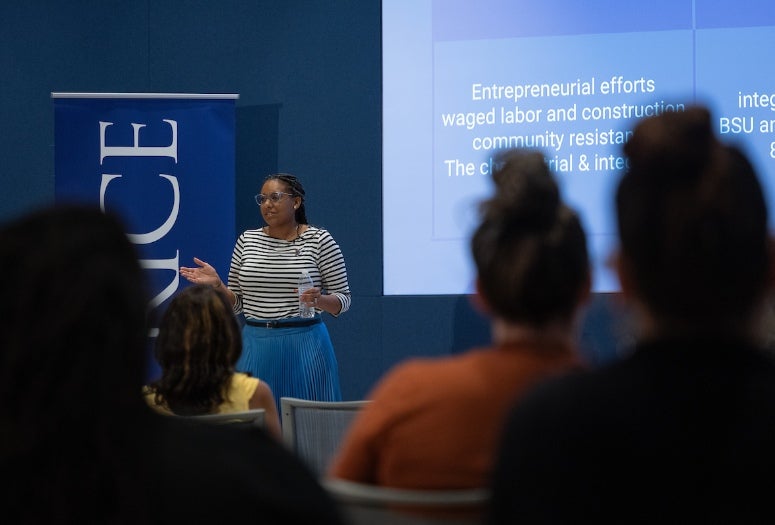Rice University hosted a capstone event for its Black History Month celebrations Feb. 27 in Sewall Hall titled “Tracing the History of Blacks at Rice Through University Records.” During the presentation, Portia Hopkins, university historian and CLIR/DLF postdoctoral research associate in data curation for African American Studies, showcased the archived experience of Blacks at Rice. The event was sponsored by Multicultural Community Relations in Public Affairs.
“We’ve got to start in the archive because that’s where it all begins anyway,” Hopkins said as she detailed what the records reveal. “I posed [this conversation] as a co-collaborative effort so that we can think about the ways that, as students, faculty, staff and community members, we can come together and wrap our whole arms around this archive and really make it an inclusive space for everyone.”
She themed the presentation around a Black Renaissance in the archive that was divided into three acts.
Act One (1910 – 1965) talked about the construction and entrepreneurship and the way Black people related to the institution by way of labor. Act Two (1963 – 1995) detailed integration and desegregation. Act Three (1995 – present) described the protest movements and how Black people created and cultivated safe spaces for themselves and challenged the status quo regarding racism.
Hopkins encouraged all members of the university to actively participate in recording living history in order to preserve moments in time for archival purposes.

“We’ve got to record these stories,” she said. “You have a phone. You have the ability. We are co-creators in this archive. We can do this together. I really want everyone to think about how they can do something themselves. These can be co-collaborative and crowdsourced archival opportunities for people to think more critically and holistically about our history here.”
She ended on a note that underscored the importance of preserving the stories, photos, videos and data through archiving and how that process serves the entire community to tell the story of Rice.
“Black history is American history and Black Rice history is Rice history, so we should all be co-collaborators in creating those archives,” Hopkins said.

